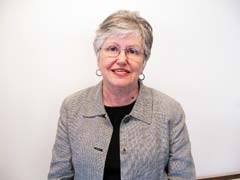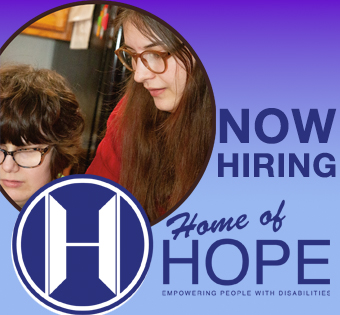Advocacy for People with Learning Disabilities
The Learning Disabilities Association of Oklahoma helps parents find the right solution for children with learning disabilities.
By: Joshua Danker-Dake | Category: Special Interest | Issue: November 2010

Linda Modenbach, president of Learning Disabilities Association of Oklahoma, says they are a parent-founded advocacy organization.
Learning Disabilities Association of Oklahoma (LDAO), an affiliate of Learning Disabilities of America, serves as an advocate for children and adults who have learning disabilities. LDAO works to identify learning disabilities, and to enhance the quality of life for individuals and families of individuals with learning disabilities.
“We’re a parent-founded advocacy organization,” says Linda Modenbach, president of LDAO. “We encourage parents to participate so they can learn to work with their children, and because parents are the best advocates for children with learning disabilities. We can help parents find the right solutions for their children, which can be a daunting process; learning disabilities are life-long, and they can affect everything from social relationships to the ability to handle household tasks. They take specialized methodology and strategies to overcome.”
The Individuals with Disabilities Education Improvement Act of 2004 defines a learning disability as “a neurological disorder that affects one or more of the basic psychological processes involved in understanding or in using spoken or written language.” This includes dyslexia, perceptual disability, developmental aphasia, and minimal brain dysfunction. A disability may appear as an imperfect ability to listen, think, speak, read, write, spell or do math.
A learning disability is not the same as a developmental disability. “Individuals with LD have average to above average intelligence who have gaps in their learning,” says Modenbach. “Five percent of students in America have some kind of learning disability – over two million children.”
There are many symptoms of learning disabilities, varying by age. If you suspect your child has a learning disability, LDAO encourages you to speak with your child’s teacher, ask for a referral for an evaluation, and contact LDAO.
This year, LDAO’s state conference is November 8 and 9 in Norman. “We alternate annually between the Tulsa and Oklahoma City areas, so we can reach as many people as possible,” says Modenbach. “Our overall mission is to improve the lives of people with learning disabilities, and our conference is designed to equip parents, teachers, professionals, counselors and social workers.”
A key part of the conference is the annual art contest for students with learning disabilities. The contest is open to students between kindergarten and twelfth grade, and categories include pencil, charcoal and ink; crayon, pastels, acrylic and oil; sculpture, molding and other three-dimensional work; and poetry, creative writing and photography. All art entered is displayed at the conference, and winners will be recognized at an awards luncheon during the conference.
The conference’s keynote speaker will be author and educational consultant Linda Tilton, who will present practical strategies for teachers, parents and administrators. State Representative Scott Martin will also speak, as well as present the art contest awards.
One of LDAO’s initiatives is the Healthy Children Project, the goal of which is to inform parents of the link between environmental toxins and learning disabilities. Many toxins can be found in ordinary household environments, and even in trace amounts, these can contribute to learning disabilities, according to LDAA. Lead can be found in old paint, toys and jewelry; mercury can be found in fluorescent bulbs and some kinds of fish; many pesticides and solvents can be dangerous as well. LDAA recommends buying organic food and cleaning with non-toxic products like baking soda for kitchens and bathrooms, vinegar for glass, white vinegar and lemon juice for scale and mold, and vinegar and baby oil for wood and tile. LDAA discourages the use of antibacterial soap, the prevalent use of which can lead to antibiotic-resistant bacteria; use regular soap instead. There’s much more; for more information, or for specific cleaning formulas, contact LDAA. “These are simple steps parents can take to make their home free of the toxins that can cause problems,” says Modenbach.
LDAO is volunteer-driven, and relies on the involvement of parents and educators. “We are a grassroots organization,” says Modenbach. “If you have a child with a learning disability, be informed and speak up. When legislation is considered, there’s strength in numbers and in a strong organization.”
The Learning Disabilities Association of Oklahoma state conference is November 8 and 9 in Norman. For much more information, as well as conference and art contest registration forms, contact LDAO or visit www.ldao.org.
For more information, contact
Learning Disabilities Association of Oklahoma
P.O. Box 1134Jenks, OK 74037(918) 298-1600
Learning Disabilities Association of Oklahoma
For more information, contact:
Learning Disabilities Association of Oklahoma
More about Learning Disabilities Association of Oklahoma:
More ArticlesSubscribe
For Free!



